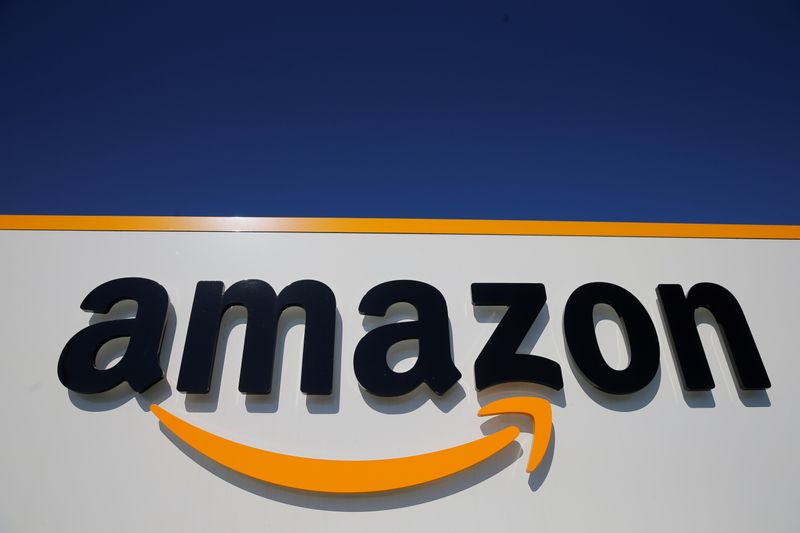By Noel Randewich
(Reuters) - No company's stock market value has benefited more from the coronavirus pandemic than Amazon.com (NASDAQ:AMZN)'s.
The online retailer and cloud computing heavyweight's market capitalization has ballooned by over $90 billion to record highs since mid-February, adding $5 billion to the fortune of founder and Chief Executive Jeff Bezos.
Optimism about gradually reopening the U.S. economy has fueled a rally on Wall Street in recent weeks, but the S&P 500 remains down 13% since Feb. 19, just before fear caused by the coronavirus gripped Wall Street and ended the benchmark's 11-year bull market. With online shopping booming as millions of people stay at home and avoid traditional stores, Amazon's stock has climbed 9% in the same period, including a 2% jump on Wednesday.
(Graphic: Amazon vs S&P 500 IMAGE link: https://fingfx.thomsonreuters.com/gfx/mkt/xklvykgaevg/Annotation%202020-04-29%20112943.jpg)
"During this crisis, Amazon has proven irreplaceable in delivering the daily necessities to people around the world, a fact that we believe will increase the number of customers on the platform, expand the list of products purchased by existing customers, accelerate the shift to ecommerce at large and enhance the company's brand," Monness Crespi analyst Brian White wrote in a client note on Tuesday.
White is among 49 analysts who recommend buying Amazon's shares, according to Refinitiv. Just two analysts have "hold" ratings and none recommend selling.
The Seattle, Washington-based company's results on Thursday after the bell will give investors a glimpse of how the global crisis has affected its retail business in the final month of the quarter, as well as its highly profitable Amazon Web Services cloud computing arm. Investors will also want to know how Amazon expects the ongoing health crisis to affect its business in coming months, including the company's ongoing, deep investments to reduce its Prime shipping to one-day from two-day service.
With hand sanitizers, groceries, office chairs, home exercise equipment and other products selling out on its website as millions of people around the world shelter at home, Amazon has struggled to increase capacity at its warehouses and maintain its supply chains while minimizing health risks to employees. Critics, including New York Attorney General Letitia James, have accused Amazon of taking inadequate measures to protect warehouse workers from catching the illness.
Reflecting changes caused by the coronavirus, the average analyst estimate for Amazon's quarterly revenue has increased by over $1 billion since the end of January, while the average estimate for its earnings has dipped by 20 cents per share, according to Refinitiv data, reflecting expectations of higher costs related to the coronavirus.
Amazon and other leading retailers may also emerge from the pandemic in stronger positions relative to competitors. The U.S. economy contracted in the first quarter at its sharpest pace since the financial crisis because of shelter-in-place orders, and stores that were already struggling may not survive the health crisis.
Neiman Marcus [NMRCUS.UL] is preparing to seek bankruptcy protection, Reuters has reported, and Gap Inc (NYSE:GPS) last week warned it may not survive the next 12 months.
Overall, about 50 S&P 500 stocks are up since Feb. 19, a few of them directly because of the coronavirus outbreak and related changes in consumer behavior. Some of those have risen more on a percentage basis than Amazon. Gilead Sciences (NASDAQ:GILD), which on Wednesday gave an encouraging update on a potential COVID-19 treatment, has jumped 25% since Feb. 19, adding $21 billion to its market capitalization. General Mills (NYSE:GIS) and Conagra Brands have both climbed 15% as consumers stocked up on food and other consumer staples.

Analysts on average expect Amazon's March quarter revenue to have jumped 23% to $73.61 billion, with adjusted earnings of $6.25 per share, according to Refinitiv.